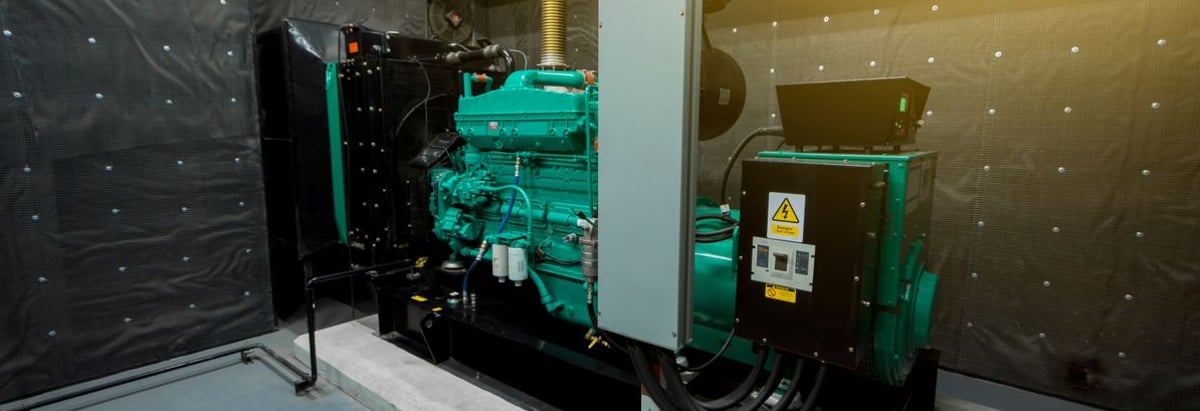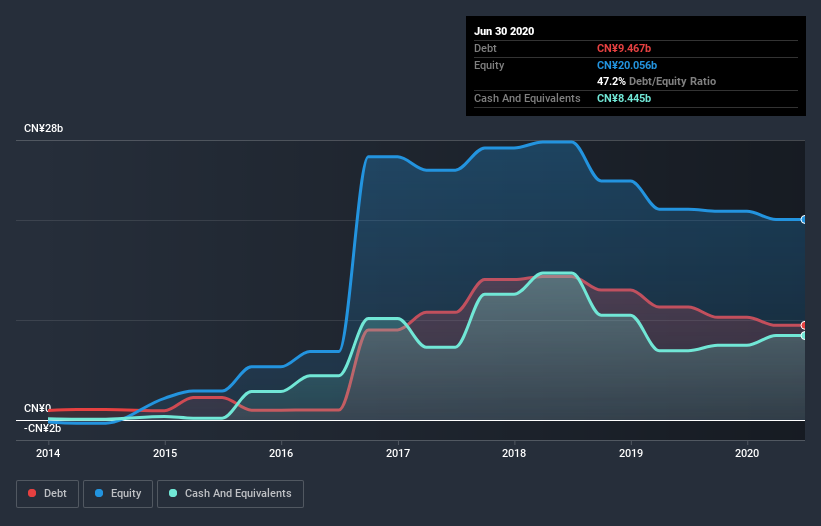- Hong Kong
- /
- Electrical
- /
- SEHK:607
We Think Fullshare Holdings (HKG:607) Is Taking Some Risk With Its Debt

David Iben put it well when he said, 'Volatility is not a risk we care about. What we care about is avoiding the permanent loss of capital.' So it might be obvious that you need to consider debt, when you think about how risky any given stock is, because too much debt can sink a company. We note that Fullshare Holdings Limited (HKG:607) does have debt on its balance sheet. But the more important question is: how much risk is that debt creating?
Why Does Debt Bring Risk?
Debt and other liabilities become risky for a business when it cannot easily fulfill those obligations, either with free cash flow or by raising capital at an attractive price. If things get really bad, the lenders can take control of the business. However, a more frequent (but still costly) occurrence is where a company must issue shares at bargain-basement prices, permanently diluting shareholders, just to shore up its balance sheet. Of course, plenty of companies use debt to fund growth, without any negative consequences. When we think about a company's use of debt, we first look at cash and debt together.
Check out our latest analysis for Fullshare Holdings
What Is Fullshare Holdings's Net Debt?
You can click the graphic below for the historical numbers, but it shows that Fullshare Holdings had CN¥9.47b of debt in June 2020, down from CN¥11.3b, one year before. However, because it has a cash reserve of CN¥8.44b, its net debt is less, at about CN¥1.02b.

How Healthy Is Fullshare Holdings's Balance Sheet?
The latest balance sheet data shows that Fullshare Holdings had liabilities of CN¥19.6b due within a year, and liabilities of CN¥4.02b falling due after that. Offsetting these obligations, it had cash of CN¥8.44b as well as receivables valued at CN¥6.71b due within 12 months. So its liabilities total CN¥8.44b more than the combination of its cash and short-term receivables.
This deficit casts a shadow over the CN¥2.72b company, like a colossus towering over mere mortals. So we definitely think shareholders need to watch this one closely. At the end of the day, Fullshare Holdings would probably need a major re-capitalization if its creditors were to demand repayment.
We use two main ratios to inform us about debt levels relative to earnings. The first is net debt divided by earnings before interest, tax, depreciation, and amortization (EBITDA), while the second is how many times its earnings before interest and tax (EBIT) covers its interest expense (or its interest cover, for short). Thus we consider debt relative to earnings both with and without depreciation and amortization expenses.
Given net debt is only 0.72 times EBITDA, it is initially surprising to see that Fullshare Holdings's EBIT has low interest coverage of 1.9 times. So one way or the other, it's clear the debt levels are not trivial. Pleasingly, Fullshare Holdings is growing its EBIT faster than former Australian PM Bob Hawke downs a yard glass, boasting a 174% gain in the last twelve months. The balance sheet is clearly the area to focus on when you are analysing debt. But it is Fullshare Holdings's earnings that will influence how the balance sheet holds up in the future. So if you're keen to discover more about its earnings, it might be worth checking out this graph of its long term earnings trend.
Finally, a business needs free cash flow to pay off debt; accounting profits just don't cut it. So we clearly need to look at whether that EBIT is leading to corresponding free cash flow. Happily for any shareholders, Fullshare Holdings actually produced more free cash flow than EBIT over the last three years. That sort of strong cash generation warms our hearts like a puppy in a bumblebee suit.
Our View
While Fullshare Holdings's level of total liabilities has us nervous. To wit both its conversion of EBIT to free cash flow and EBIT growth rate were encouraging signs. We think that Fullshare Holdings's debt does make it a bit risky, after considering the aforementioned data points together. That's not necessarily a bad thing, since leverage can boost returns on equity, but it is something to be aware of. There's no doubt that we learn most about debt from the balance sheet. However, not all investment risk resides within the balance sheet - far from it. Like risks, for instance. Every company has them, and we've spotted 2 warning signs for Fullshare Holdings (of which 1 is a bit concerning!) you should know about.
At the end of the day, it's often better to focus on companies that are free from net debt. You can access our special list of such companies (all with a track record of profit growth). It's free.
If you’re looking to trade Fullshare Holdings, open an account with the lowest-cost* platform trusted by professionals, Interactive Brokers. Their clients from over 200 countries and territories trade stocks, options, futures, forex, bonds and funds worldwide from a single integrated account. Promoted
New: AI Stock Screener & Alerts
Our new AI Stock Screener scans the market every day to uncover opportunities.
• Dividend Powerhouses (3%+ Yield)
• Undervalued Small Caps with Insider Buying
• High growth Tech and AI Companies
Or build your own from over 50 metrics.
This article by Simply Wall St is general in nature. It does not constitute a recommendation to buy or sell any stock, and does not take account of your objectives, or your financial situation. We aim to bring you long-term focused analysis driven by fundamental data. Note that our analysis may not factor in the latest price-sensitive company announcements or qualitative material. Simply Wall St has no position in any stocks mentioned.
*Interactive Brokers Rated Lowest Cost Broker by StockBrokers.com Annual Online Review 2020
Have feedback on this article? Concerned about the content? Get in touch with us directly. Alternatively, email editorial-team@simplywallst.com.
About SEHK:607
Fullshare Holdings
An investment holding company, manufactures and sells mechanical transmission equipment and gear products in the People’s Republic of China, the United States, Europe, Australia, and internationally.
Excellent balance sheet low.
Market Insights
Community Narratives



